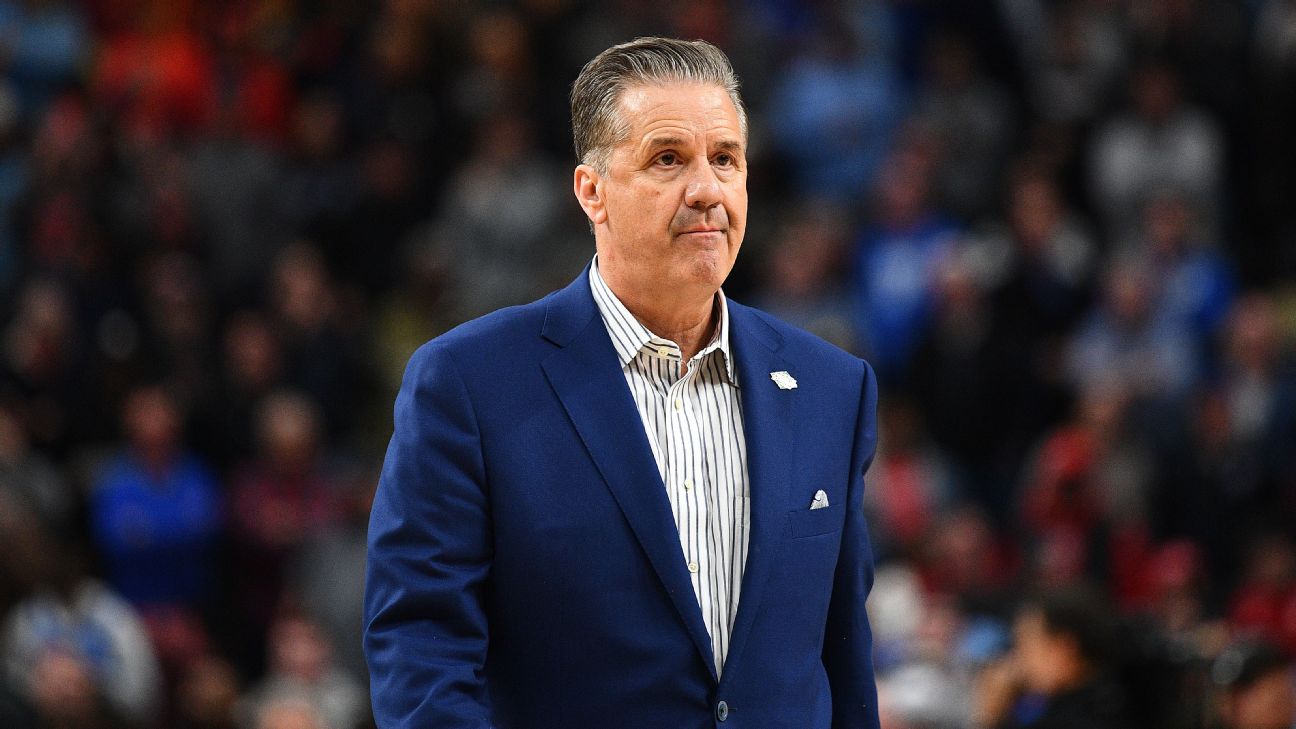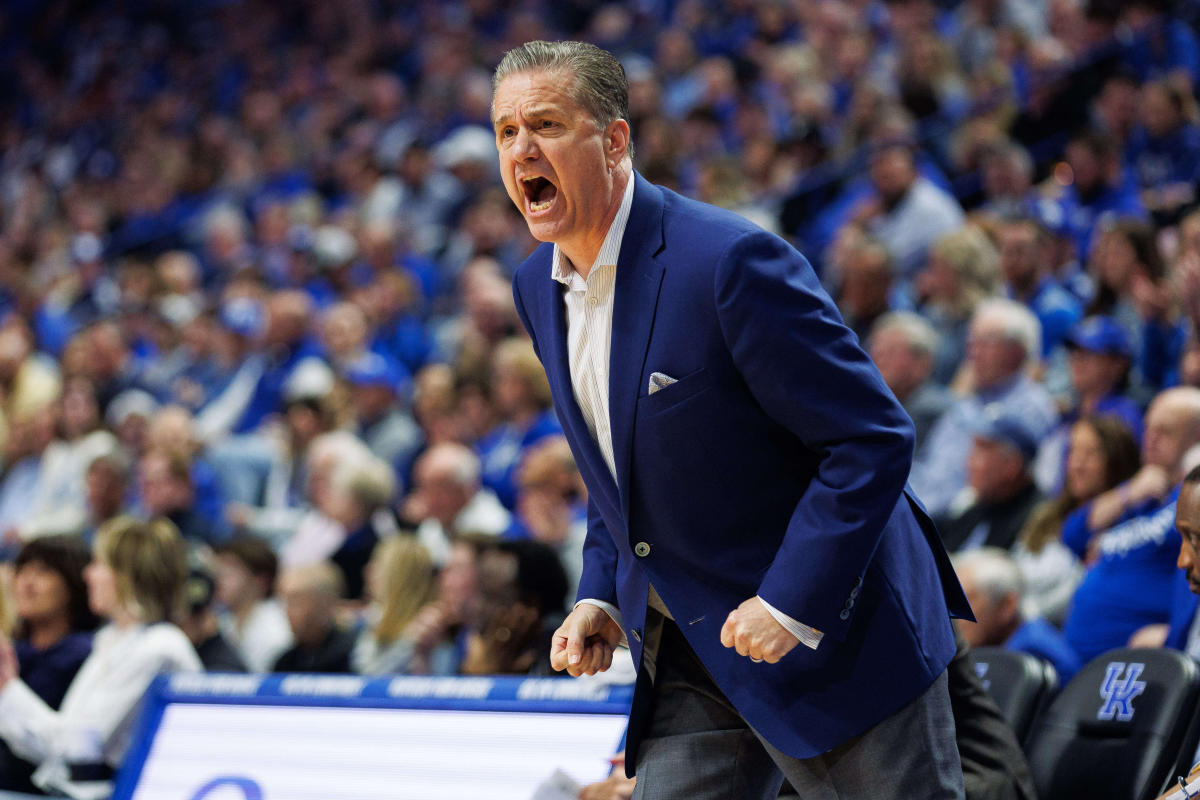Shortly after his team’s stunning first-round NCAA tournament loss to Oakland last Thursday, embattled Kentucky coach John Calipari disconnected from the world, turning off his phone and seeking seclusion for a couple of days.
Calipari admitted that he needed that time to recalibrate, to recover mentally from a setback that still weighed heavily on him five days later, describing it as making him “physically ill.”
Emerging from his self-imposed hiatus on Monday night, Calipari made a resilient appearance on his weekly radio show, speaking with determination rather than trepidation about the future of the Kentucky program.
Despite enduring a fourth consecutive season falling short of the NCAA tournament’s second weekend, Calipari focused on his unwavering commitment to restoring Kentucky’s prominence in Final Fours and national championships.
“That is a commitment that I give to the fans,” Calipari asserted. “Now let’s come together and let’s go do something special. We can do it. We’ve done it. Let’s do it again.”

The shadow of uncertainty loomed over Calipari’s job security following the March catastrophe. A graduate transfer from Division II Hillsdale College emerged as the hero for Oakland, overshadowing Kentucky’s star-studded lineup.
However, this wasn’t the first time Kentucky had witnessed a lesser-known opponent steal the spotlight in the NCAA tournament. In previous years, players like Doug Edert from Saint Peter’s and Markquis Nowell from Kansas State had etched their names into tournament lore with remarkable performances against the Wildcats.
Despite speculation about his future, Kentucky athletic director Mitch Barnhart remained silent on Calipari’s status. Calipari revealed that he and Barnhart were yet to convene for their customary end-of-season meeting, leaving room for discussion on how to move forward.
Calipari acknowledged the need for changes, particularly in roster construction. Reflecting on recent seasons, he emphasized the shift towards more experienced lineups and highlighted the challenge of competing with freshmen in today’s environment, where opponents often feature older, more seasoned players.
His vision for the ideal roster involves a blend of seasoned veterans and promising freshmen, maintaining the fast-paced style while re-establishing the defensive intensity that characterized his successful teams.
But before implementing any changes, Calipari must ascertain the intentions of his current players regarding their future with the program. He plans to engage in individual meetings with them to understand their plans and offer support accordingly.
Despite the tumultuous atmosphere surrounding his position, Calipari remained resolute, acknowledging the concerns of Kentucky fans while expressing confidence that the storm would eventually pass.
The radio show concluded abruptly, mirroring the current state of the Kentucky program—a mix of uncertainty and determination as Calipari presses forward amidst adversity.
